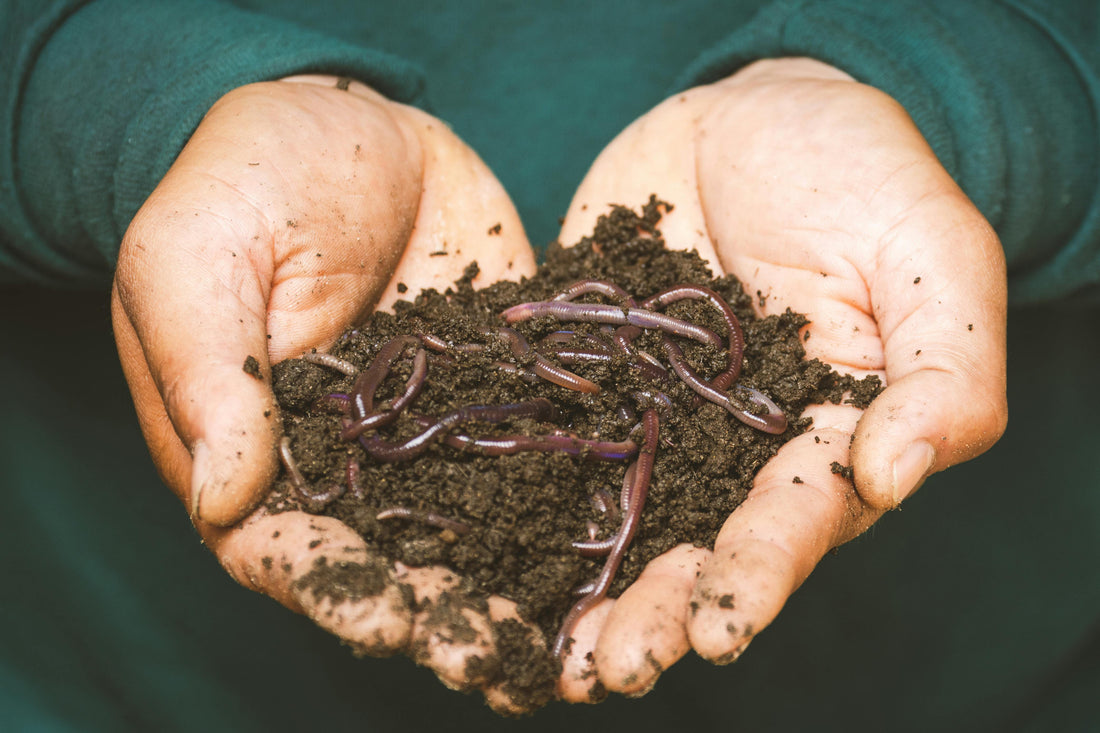Urban farming is an increasingly popular trend, allowing city dwellers to grow their own fresh produce in limited spaces. One of the keys to successful urban farming is using the right organic fertilizers to nourish your crops. Organic fertilizers provide essential nutrients to plants while improving soil health and supporting sustainable gardening practices. Here’s an in-depth look at some of the best organic fertilizers for your urban crops.
1. Compost: The Garden Gold
Compost is a rich, natural fertilizer made from decomposed organic materials such as kitchen scraps, garden waste, and leaves. It is one of the most effective ways to improve soil fertility and structure.
Benefits: Compost enriches the soil with a wide range of nutrients essential for plant growth. It also improves soil structure, enhancing its ability to retain moisture and support beneficial microorganisms. This not only helps plants grow stronger and healthier but also reduces the need for chemical fertilizers.
How to Use: Mix compost into the top few inches of your soil or use it as a top dressing around your plants. Regularly adding compost to your garden helps maintain soil fertility and promotes vigorous plant growth.
2. Vermicompost: Nutrient-Rich Worm Castings
Vermicompost, or worm castings, is another powerful organic fertilizer produced through the breakdown of organic material by earthworms. It is packed with nutrients and beneficial microorganisms.
Benefits: Vermicompost is high in essential nutrients like nitrogen, phosphorus, and potassium, which are crucial for plant health. It also improves soil aeration and drainage, making it an excellent choice for urban gardens.
How to Use: Mix vermicompost into your potting soil or sprinkle it around the base of your plants. This will provide a steady supply of nutrients and enhance soil health over time.
3. Fish Emulsion: A Quick Nutrient Boost
Fish emulsion is a liquid fertilizer made from fish byproducts. It is an excellent source of nitrogen and other nutrients, making it ideal for giving your plants a quick nutrient boost.
Benefits: Fish emulsion enhances soil microbial activity and provides a quick source of nutrients to plants. It is particularly useful for leafy greens and other nitrogen-loving plants.
How to Use: Dilute fish emulsion with water according to the instructions and apply it to your soil or use it as a foliar spray. This method ensures that your plants quickly absorb the nutrients they need.
4. Seaweed Extract: Boost from the Ocean
Seaweed extract is a nutrient-rich fertilizer derived from seaweed. It contains trace minerals, amino acids, and plant growth hormones that promote healthy root development and enhance plant resilience.
Benefits: Seaweed extract improves plant growth and resilience, supplying essential trace elements and stimulating beneficial soil microorganisms. It is also known to enhance the plant’s tolerance to stress.
How to Use: Apply seaweed extract as a soil drench or foliar spray after diluting it with water. This helps your plants absorb the nutrients more efficiently and supports their overall health.
5. Bone Meal: Essential Phosphorus and Calcium
Bone meal is a slow-release fertilizer made from ground animal bones. It is rich in phosphorus and calcium, which are essential for root development and flowering.
Benefits: Bone meal supports strong root systems and enhances flowering and fruiting. It also improves the overall nutrient content of your soil.
How to Use: Mix bone meal into the soil at planting time or sprinkle it around established plants. This will ensure a steady supply of phosphorus and calcium to your crops.
6. Manure: Nature’s Organic Matter
Aged manure from animals such as cows, horses, or chickens is an excellent organic fertilizer. It adds significant organic matter to the soil and provides a balanced mix of nutrients.
Benefits: Manure increases soil fertility, improves soil structure, and enhances water retention. It is a time-tested method for enriching garden soil.
How to Use: Incorporate well-rotted manure into your soil before planting or use it as a mulch around your plants. This helps improve soil health and fertility over the long term.
7. Green Manure: Cover Crops for Soil Health
Green manure involves growing specific plants, such as clover or alfalfa, which are then tilled into the soil to improve its fertility and organic matter content.
Benefits: Green manure adds organic matter to the soil, improves soil structure, and increases nutrient availability. It also helps prevent soil erosion and suppresses weeds.
How to Use: Grow green manure crops during the off-season and till them into the soil before planting your main crops. This enriches the soil and prepares it for the next growing season.
8. Organic Fertilizer Mixes: Convenience and Balance
Commercially available organic fertilizer mixes are formulated to provide a balanced supply of essential nutrients. These mixes often include a combination of compost, manure, bone meal, and other organic materials.
Benefits: These mixes are convenient and easy to use, providing balanced nutrition to your plants while improving overall soil health. They are ideal for gardeners who want a ready-to-use solution.
How to Use: Follow the package instructions for application rates and methods. Regular use will help maintain soil fertility and support healthy plant growth.
Tips for Using Organic Fertilizers
• Soil Testing: Before applying any fertilizers, it’s important to test your soil to understand its nutrient needs. This ensures that you apply the right type and amount of fertilizer.
• Application Timing: Apply fertilizers at the right time, typically during the growing season or at planting time, to maximize their benefits.
• Consistency: Regularly applying organic fertilizers helps maintain soil fertility and promotes healthy plant growth.
• Composting: Starting your own compost pile is a great way to recycle kitchen and garden waste into valuable fertilizer.
By using these organic fertilizers, you can ensure that your urban crops receive the nutrients they need to thrive. Organic fertilizers not only provide essential nutrients but also improve soil health and support sustainable gardening practices. Incorporating these fertilizers into your urban farming routine will help you cultivate a productive and healthy garden in the city.

